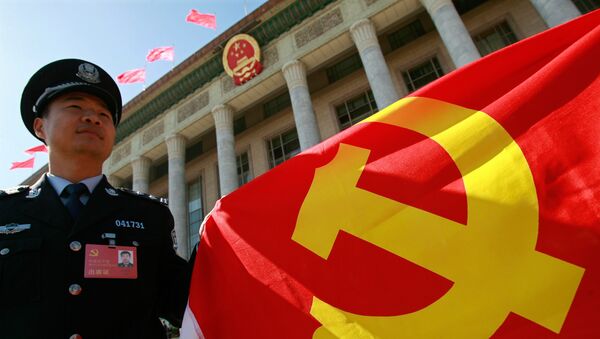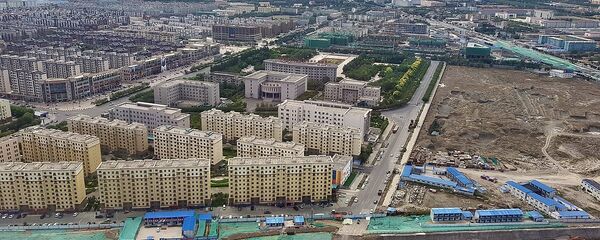Nothing will separate the Chinese people from the Communist Party, Chinese president Xi Jinping said in a speech on Thursday, Xinhua News reported.
Speaking at the event on commemorating the 75th anniversary of the victory in the Chinese People's War of Resistance Against Japanese Aggression and the World Anti-Fascist War, President Xi said that Chinese soldiers had fought 14 years to liberate the country from Japanese militant aggressors.
President Xi added that maintaining "long-lasting peaceful and friendly relations" between Japan and China was in the fundamental interest of the two nations and essential to maintaining peace and stability in Asia.
But the Chinese president warned that it was necessary to "uphold the leadership" of the Party, adding that the government would adopt five "never-allow" scenarios.
"The Chinese people will never allow any individual or any force to separate the CCP and Chinese people, and to pitch them against each other. The Chinese people will never allow any individual or any force to distort the CCP's history, and to vilify the CCP's character and purpose," President Xi said in his speech.
Other red lines included 'distorting' the history of the CCP or path of socialism with Chinese characteristics, bullying China's direction of progress, as well as blocking the nation's right to cooperate with others, among others, he said.
The stern warning against foreign interference comes amid heightened tensions with the United States amid the ongoing trade and tech wars, where the latter extended trade restrictions on over 70 Chinese firms and launched numerous executive orders to block access to US technologies, namely semiconductor technologies, citing national security concerns.
But analysts speaking to US media have said that the Trump administration's measures against the Chinese semiconductor industry have triggered stockpiling of processors among US chipmakers amid fears of a shortfall in funding from Washington.
The US government pledged $22.8bn in June but roughly twice the amount may be required to cover the costs of the ongoing trade war to US chipmakers, analysts said this week.
The US Office of Foreign Asset Control (USOFAC) also targeted the Xinjiang Production and Construction Corps (XPCC) and three of its officials with sanctions, citing alleged human rights abuses in the Xinjiang Uyghur Autonomous Region (XUAR).
The accusations sparked anger from Beijing, where numerous Chinese officials have rebuked the claims and stated Chinese authorities were tackling secessionist and terrorist issues in the westernmost province.
US lawmakers passed a bill sanctioning banks doing business with several officials in Beijing linked to the bill, with US secretary of state Mike Pompeo stating in May that the finance hub could lose its special status as an autonomous region.







